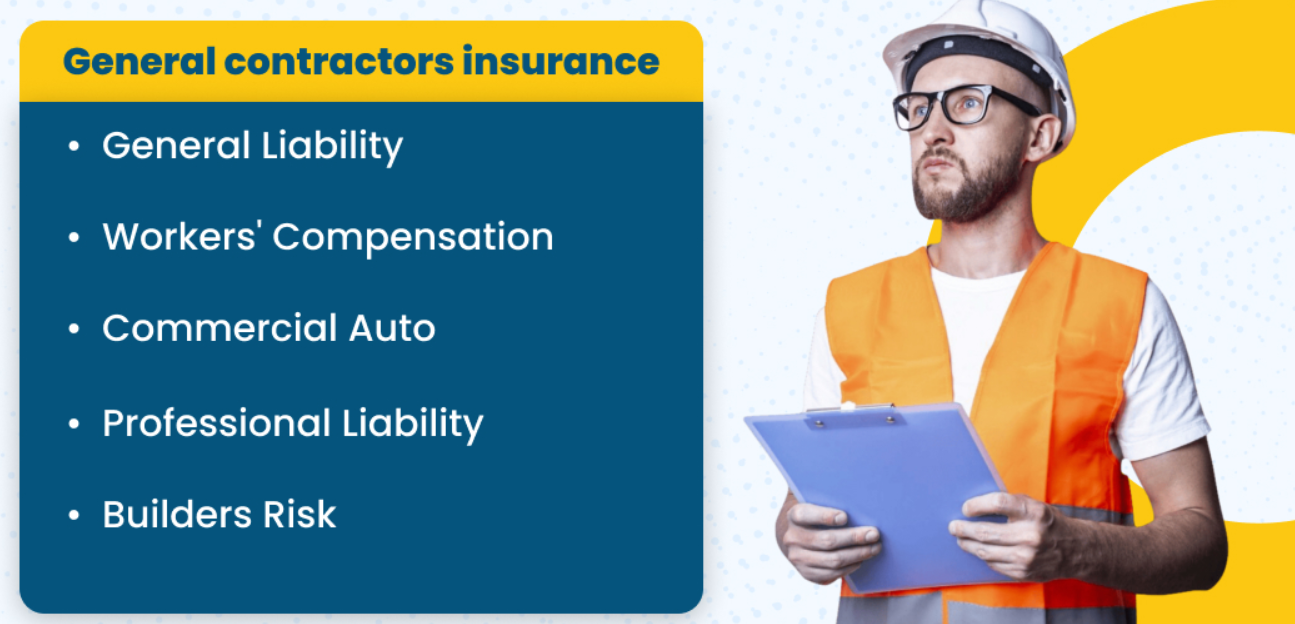In the fast-paced world of construction, contractors face unique risks daily. Whether you’re managing a small remodeling job or a large-scale commercial project, the importance of commercial insurance cannot be overstated. Contractors need insurance policies tailored to protect against accidents, property damage, and liability claims. This comprehensive guide will explore everything contractors need to know about commercial insurance, covering types of policies, costs, and benefits.
Understanding Commercial Insurance for Contractors
What is Commercial Insurance for Contractors?
Commercial insurance for contractors is a specialized type of insurance policy designed to cover the unique risks faced by construction professionals. This insurance includes protection against third-party claims, property damage, workplace accidents, and potential lawsuits. Contractors rely on these policies to safeguard their business operations, assets, and employees.
Who Needs Commercial Insurance?
Commercial insurance is essential for all types of contractors, including general contractors, electricians, plumbers, and landscapers. Whether you’re self-employed or run a contracting firm, having the right insurance can protect your business from costly claims that could otherwise jeopardize your livelihood.
Why Commercial Insurance is Critical for Contractors
Contractors operate in high-risk environments where accidents and damages are common. From injured workers to damaged client property, unexpected incidents can lead to financial losses and legal disputes. Commercial insurance ensures that contractors have the financial backing to handle claims, repairs, and legal fees, keeping the business afloat even when things go wrong.
Types of Commercial Insurance for Contractors
General Liability Insurance
General liability insurance is one of the most critical policies for contractors. It covers third-party bodily injuries, property damage, and advertising injuries. For example, if a client slips and falls at your job site or you accidentally damage a client’s property, general liability insurance will cover the associated costs.
Workers’ Compensation Insurance
Contractors are required by law in most states to carry workers’ compensation insurance if they employ workers. This policy covers medical expenses and lost wages for employees who are injured on the job. Additionally, workers’ compensation protects contractors from lawsuits filed by injured workers.
Commercial Property Insurance
For contractors who own or lease property or equipment, commercial property insurance is crucial. This policy covers damage or loss of physical assets due to fire, theft, vandalism, or other covered events. It protects buildings, tools, and construction materials, ensuring that contractors can replace or repair equipment without significant financial strain.
Costs of Commercial Insurance for Contractors
Factors That Affect Insurance Costs
Several factors influence the cost of commercial insurance for contractors. These include the size of the business, the types of projects undertaken, the number of employees, and the location of the business. High-risk projects, such as large commercial builds, typically have higher insurance premiums than smaller, lower-risk jobs.
Average Premiums for Contractors
On average, contractors can expect to pay between $500 and $1,500 annually for general liability insurance. Workers’ compensation and commercial property insurance costs vary based on the number of employees and the value of the property being insured. It’s essential to shop around and compare quotes to find the best coverage at an affordable price.
Tips for Reducing Insurance Costs
Contractors can lower their insurance costs by maintaining a safe work environment, implementing safety training programs, and investing in high-quality tools and equipment. Bundling multiple insurance policies with the same provider and maintaining a good claims history can also result in discounts on premiums.
Benefits of Commercial Insurance for Contractors
Protects Against Financial Losses
The primary benefit of commercial insurance is the protection it provides against unexpected financial losses. Whether it’s an injured worker or a damaged property, insurance covers the associated costs, allowing contractors to continue operating without financial strain.
Enhances Credibility and Trust
Clients are more likely to hire contractors who carry commercial insurance because it demonstrates professionalism and responsibility. Having the proper insurance in place shows that you are prepared for potential risks and that you take the safety of your employees and clients seriously.
Compliance with Legal Requirements
In many jurisdictions, contractors are required by law to have certain types of insurance, such as workers’ compensation. Failing to carry the required insurance can result in fines, legal penalties, and the inability to obtain necessary licenses. By maintaining compliance, contractors can avoid legal issues and focus on growing their business.
FAQs About Commercial Insurance for Contractors
1. Do I need commercial insurance if I’m a small contractor?
Yes, even small contractors face risks that can lead to costly claims. Commercial insurance provides essential protection, no matter the size of your business.
2. What does general liability insurance cover for contractors?
General liability insurance covers third-party bodily injuries, property damage, and advertising injuries. It’s one of the most important policies for contractors.
3. How much does commercial insurance cost for contractors?
The cost of commercial insurance varies based on the size of your business, the number of employees, and the types of projects you undertake. On average, general liability insurance costs between $500 and $1,500 annually.
4. Is workers’ compensation required for contractors?
In most states, contractors are required to carry workers’ compensation insurance if they employ workers. This policy covers medical expenses and lost wages for injured workers.
5. Can I bundle different types of insurance policies?
Yes, many insurance providers offer bundling discounts for contractors who purchase multiple policies, such as general liability and commercial property insurance.
Conclusion
For contractors, commercial insurance is not just a safeguard—it’s a vital tool for protecting the business from financial risks and building trust with clients. By understanding the different types of coverage, costs, and benefits, contractors can make informed decisions to protect their business and ensure long-term success. Make sure to review your insurance options regularly and adjust your policies as your business grows.
